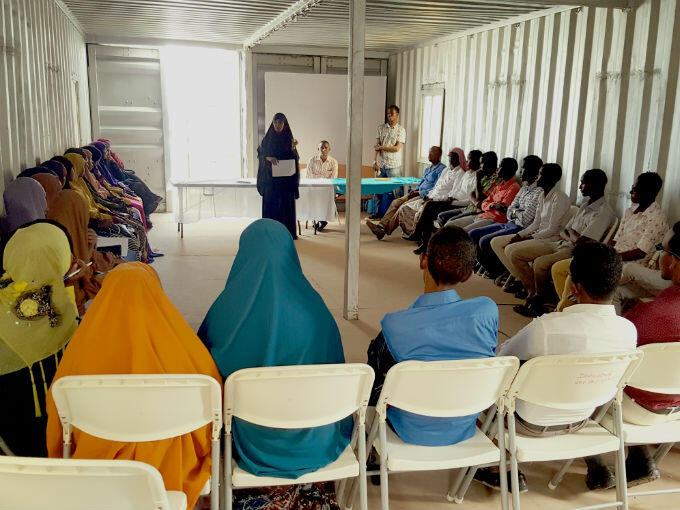Fifty-six young people in Somalia have been sharing experiences and debating on reproductive health issues affecting the youth through a series of weekly health talks that went on for a period of two months. The health talks, which also focused on HIV and STI prevention, were taking place at Mogadishu One Stop Youth Center from June 16 to August 28, 2016.
Y-PEER, the Youth Peer Education Network, in conjunction with UNFPA Somalia country office had organised the series of health talks. Somalia’s young people face a lot of challenges after nearly three decades of conflict have left them with few resources or opportunities. More than 75 percent of the country’s population is under 30 years old, according to the most recent population estimates.
A network of more than 500 non-profit organisations and governmental institutions; Y-PEER has a membership that includes thousands of young people who work in the many areas surrounding adolescent and reproductive health. A groundbreaking and comprehensive youth-to-youth initiative, the Y-PEER, was pioneered by UNFPA globally.
UNFPA Somalia has provided technical and financial support for youth programmes in the country, including Y-Peer since 2012, according to UNFPA youth Fatuma Muhumed.
“Many young people have received information on reproductive health, conflict resolution, and the prevention of drug abuse and sexually transmitted infections, including HIV,” said Muhumed.
According to Y-Peer focal person in Mogadishu Mohamed Arshad, young people’s awareness about sexual and reproductive health in Somalia is not adequate. He said the participatory sessions during the health talks allowed presenters to engage the youth in discussions and deep reflections on reproductive health practices in the Somali society.
“In Somalia, girls are given away for marriage very young, violence against girls and women is widespread and some traditional practices are highly discriminatory against women,” said Arshad, adding: “we are bringing awareness on the negative consequences of that and having the young people themselves suggest solutions.”
Some of the topics discussed include adolescence and reproductive health, prevention and causes of HIV/AIDs, family planning, gender based violence, drug and substances abuse and its effects on young people’s health and wellbeing. Others included education and entertainment for behavior change, dealing with misconceptions, according to Arshad.
“The topics emphasised on changes both physical and emotional young people experience during their transition to adulthood and how these changes can influence young people’s behavior and their sexuality as well as how young people can respond and prevent incidences of GBV. The topics also touched extensively on the positive approach to sexuality, absence of STIs, teenage pregnancies, family planning and other health related issues,” said Arshad.
-----------------------------------------------------------
For more information please contact UNFPA Somalia Communications Specialist Pilirani Semu-Banda on e-mail: semu-banda@unfpa.org


